
Braga: The Enchanted City of Churches and Gardens
Braga, located in the heart of northern Portugal, is a city steeped in history and rich in culture. Known as the 'Portuguese Rome' due to its many churches, Braga is a destination where the past and present seamlessly blend. The city is adorned with stunning Baroque architecture, charming plazas, and verdant gardens, making it a picturesque place to explore. One of the city's main highlights is the Bom Jesus do Monte sanctuary, a UNESCO World Heritage site. This breathtaking pilgrimage site, with its grand stairway and panoramic views, offers a serene escape from the bustle of the city. The historic center of Braga is equally captivating, with its narrow streets, colorful facades, and the majestic Braga Cathedral, which is the oldest in Portugal. Braga is also known for its lively festivals, including the famous Semana Santa (Holy Week) and the São João Festival. The city's youthful energy is fueled by its large student population, thanks to the University of Minho. This blend of ancient and modern makes Braga a unique destination for travelers seeking both cultural enrichment and vibrant nightlife.
Local tips in Braga
- Visit Bom Jesus do Monte early in the morning to avoid crowds and enjoy the tranquility.
- Wear comfortable shoes for walking, as Braga's historic center has many cobblestone streets.
- Try the local delicacy 'Francesinha,' a hearty sandwich that is popular in the region.
- Take advantage of the city's efficient public transport to explore surrounding areas and attractions.
- Visit during the Semana Santa or São João Festival to experience Braga's vibrant cultural traditions.
Braga: The Enchanted City of Churches and Gardens
Braga, located in the heart of northern Portugal, is a city steeped in history and rich in culture. Known as the 'Portuguese Rome' due to its many churches, Braga is a destination where the past and present seamlessly blend. The city is adorned with stunning Baroque architecture, charming plazas, and verdant gardens, making it a picturesque place to explore. One of the city's main highlights is the Bom Jesus do Monte sanctuary, a UNESCO World Heritage site. This breathtaking pilgrimage site, with its grand stairway and panoramic views, offers a serene escape from the bustle of the city. The historic center of Braga is equally captivating, with its narrow streets, colorful facades, and the majestic Braga Cathedral, which is the oldest in Portugal. Braga is also known for its lively festivals, including the famous Semana Santa (Holy Week) and the São João Festival. The city's youthful energy is fueled by its large student population, thanks to the University of Minho. This blend of ancient and modern makes Braga a unique destination for travelers seeking both cultural enrichment and vibrant nightlife.
When is the best time to go to Braga?
Iconic landmarks you can’t miss
Bom Jesus do Monte
Explore the enchanting Bom Jesus do Monte, a UNESCO World Heritage site featuring stunning architecture and breathtaking views in Portugal's scenic hills.
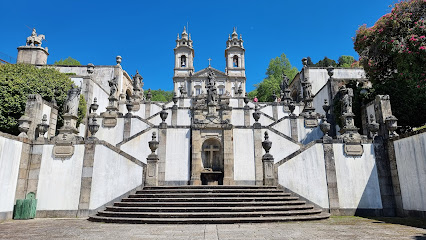
Sanctuary of Our Lady of Sameiro
Explore the breathtaking Sanctuary of Our Lady of Sameiro in Braga, a stunning blend of spirituality, architecture, and panoramic views of the scenic landscape.
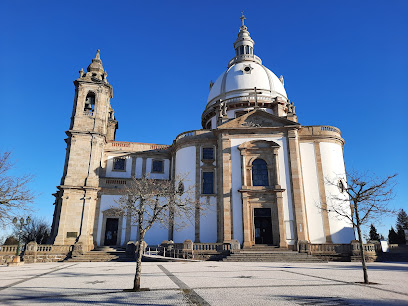
Braga Cathedral
Discover the exquisite Braga Cathedral, a remarkable blend of history and architecture in the heart of Braga, Portugal.
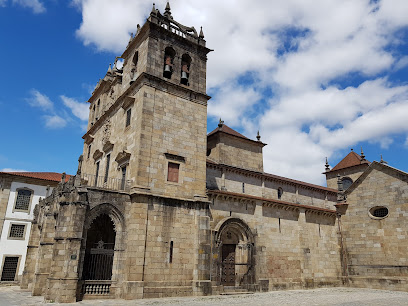
Arco da Porta Nova
Discover the stunning Arco da Porta Nova, a historical gem in Braga, Portugal, showcasing exquisite Baroque architecture and rich local culture.
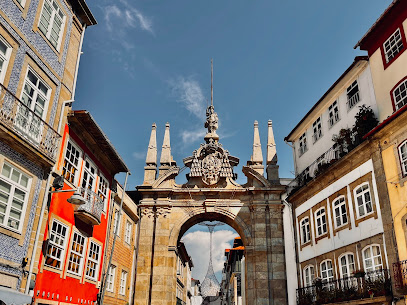
Santa Barbara Garden
Experience the serene beauty of Santa Barbara Garden, a botanical paradise in Braga, where nature and culture converge beautifully.
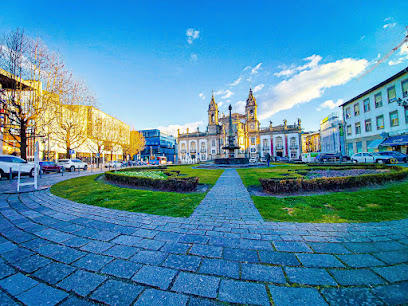
Chafariz da Praça da República
Discover the enchanting Chafariz da Praça da República in Braga, a historical fountain surrounded by vibrant cafes and rich cultural experiences.
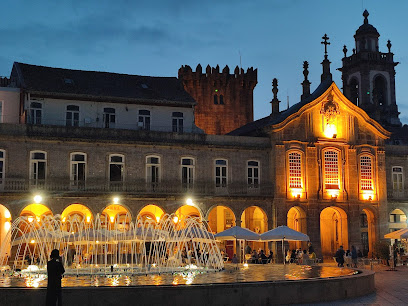
Monastery of São Martinho de Tibães
Discover the serene Monastery of São Martinho de Tibães, a Baroque architectural wonder in Portugal that embodies rich history and tranquility.

Bom Jesus Staircases
Explore the stunning Bom Jesus Staircases in Braga, a historical landmark and tourist attraction that offers breathtaking views and a rich cultural experience.
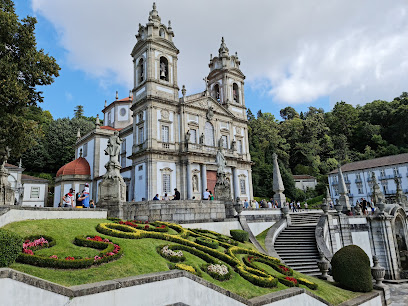
Palácio do Raio
Explore the stunning Palácio do Raio, a historical landmark and museum in Braga, showcasing the rich cultural heritage of Portugal.
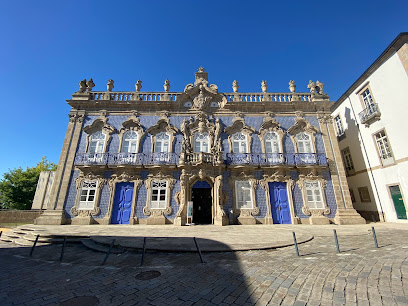
Parque do Monte do Picoto
Explore Parque do Monte do Picoto, Braga's urban oasis with breathtaking views, lush gardens, and serene pathways perfect for relaxation and exploration.
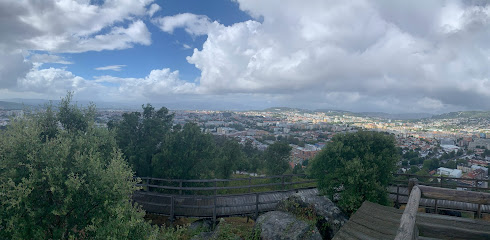
Braga Tower
Explore Braga Tower, a historic landmark in Portugal, where stunning architecture meets rich cultural heritage in an unforgettable experience.
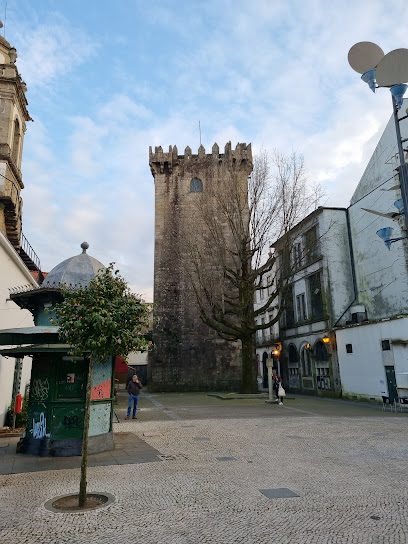
Biscainhos Museum
Discover the rich cultural heritage of Portugal at the Biscainhos Museum in Braga, showcasing exquisite art, history, and stunning architecture.

Bom Jesus Funicular
Experience the breathtaking Bom Jesus Funicular in Braga, Portugal – a scenic ride to stunning views and historical treasures.
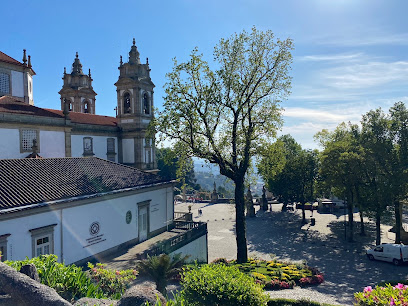
Church of Saint Victor
Discover the beauty of the Church of Saint Victor, a stunning Baroque marvel nestled in the heart of Braga, showcasing rich history and spiritual serenity.
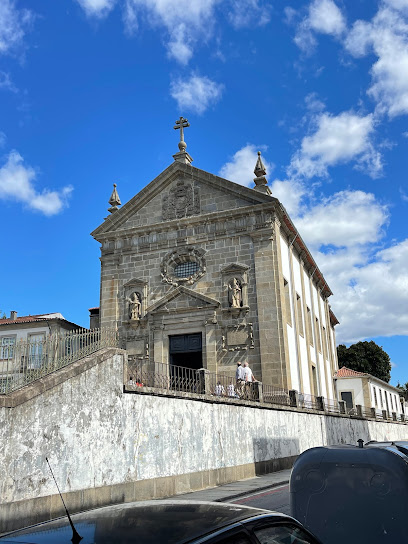
Ponte de Prado
Experience the breathtaking beauty of Ponte de Prado, a stunning bridge in Vila de Prado that combines engineering marvel with natural serenity.
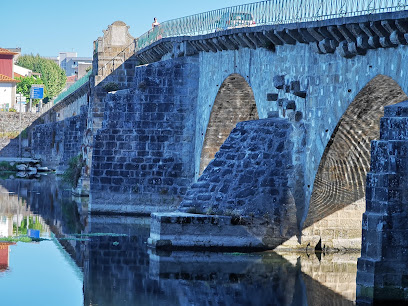
Unmissable attractions to see
Luís I Bridge
Experience the stunning views and historic charm of the iconic Luís I Bridge in Porto, a must-visit landmark connecting two vibrant cities.
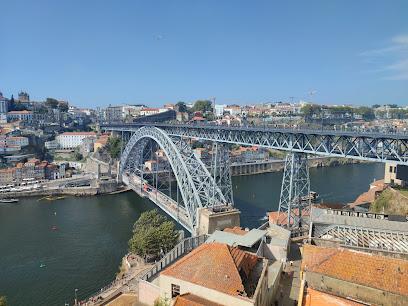
Livraria Lello
Discover Livraria Lello, Porto's iconic bookstore celebrated for its breathtaking architecture and rich literary heritage, a true delight for all visitors.
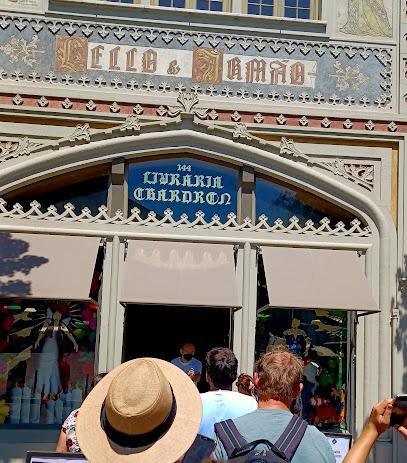
Jardins do Palácio de Cristal
Discover the serene beauty of Jardins do Palácio de Cristal in Porto, a breathtaking garden with stunning views and rich history, perfect for relaxation and exploration.
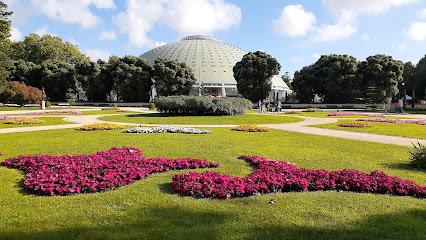
Estádio do Dragão
Experience the passion of Portuguese football at Estádio do Dragão, home to FC Porto, a stunning stadium rich in history and excitement.
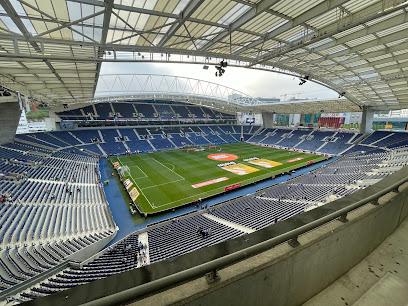
Bom Jesus do Monte
Discover the enchanting Bom Jesus do Monte, a baroque sanctuary in Portugal, offering breathtaking views, intricate architecture, and spiritual tranquility.
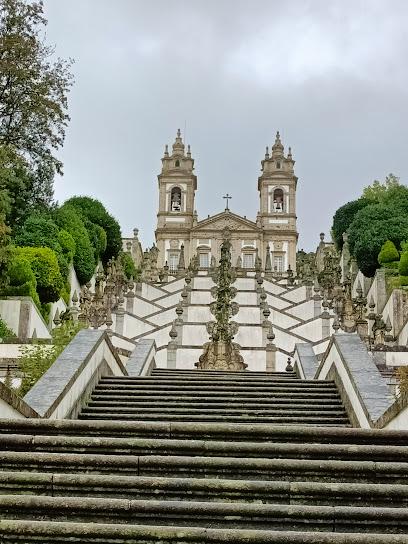
Porto Cathedral
Discover Porto Cathedral, a stunning Gothic masterpiece offering breathtaking views and rich history in the heart of Porto.
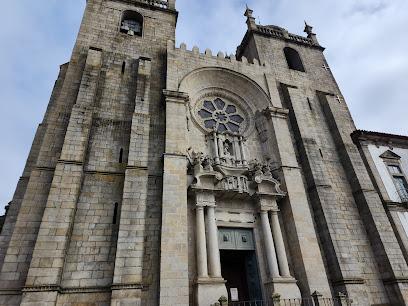
Guimarães Castle
Explore the historic Guimarães Castle, a symbol of Portugal's origins, offering breathtaking views and a glimpse into the medieval past.
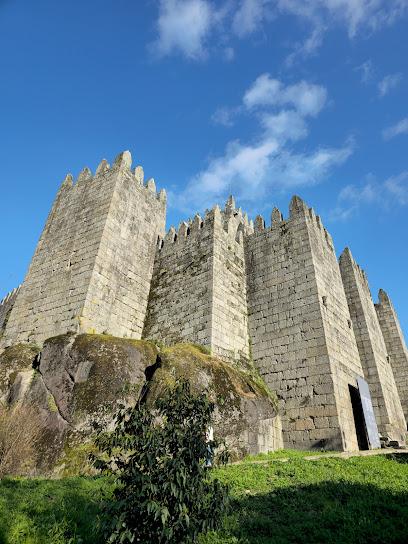
Jardim do Morro
Explore the breathtaking views and lush landscapes of Jardim do Morro, a serene garden in Vila Nova de Gaia that showcases the beauty of nature and Porto's skyline.
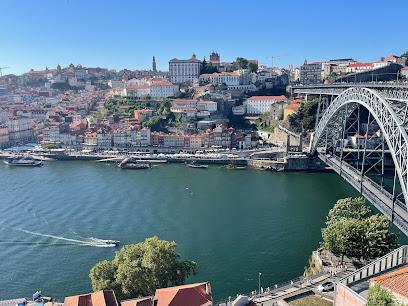
Mercado Bom Sucesso
Explore Porto's Mercado Bom Sucesso: A culinary paradise blending tradition and modernity with local flavors and vibrant atmosphere.
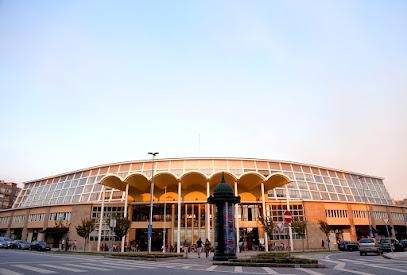
Parque da Cidade do Porto
Explore the lush landscapes and serene beauty of Parque da Cidade do Porto, the ultimate urban park experience in Portugal.
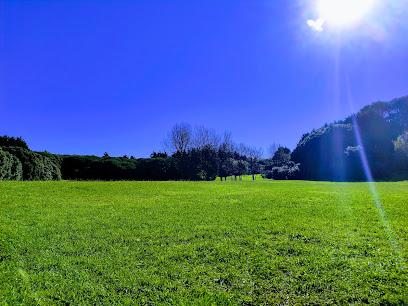
Parque Nacional Peneda-Gerês
Explore the enchanting landscapes and rich heritage of Parque Nacional Peneda-Gerês, a must-visit national park in Northern Portugal.
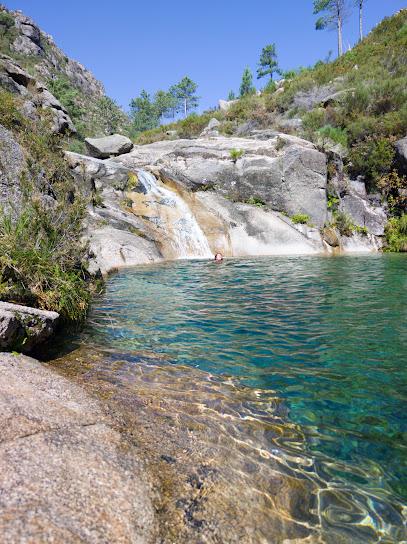
Casa da Música
Explore the architectural wonder and vibrant performances at Casa da Música, Porto's premier concert hall and cultural hub.
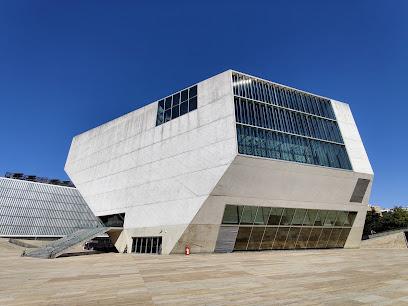
Torre dos Clérigos
Discover the iconic Torre dos Clérigos in Porto, a breathtaking baroque tower offering stunning views and rich history in the heart of the city.
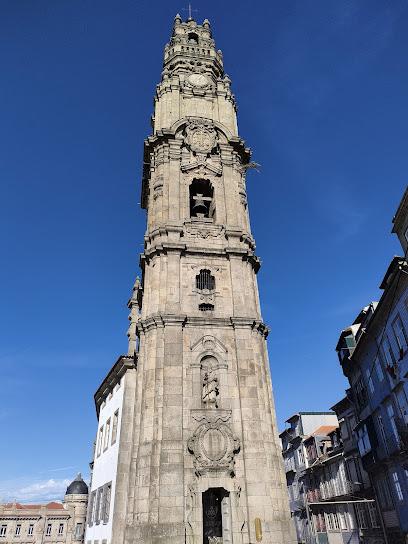
Praia de Matosinhos
Explore the golden sands and vibrant atmosphere of Praia de Matosinhos, a perfect beach destination for sun, surf, and seafood in Portugal.
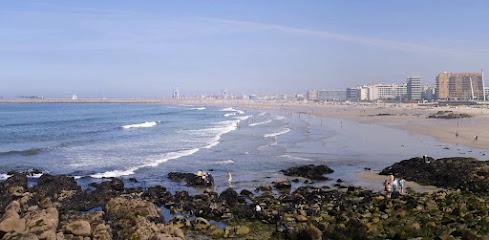
Jardim do Passeio Alegre
Discover the tranquility of Jardim do Passeio Alegre, a beautiful garden in Porto, Portugal, perfect for relaxation and nature walks.
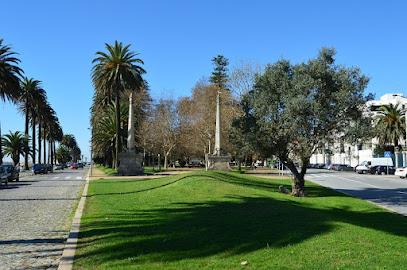
Essential places to dine
Bira dos Namorados
Discover Bira dos Namorados in Braga - where gourmet burgers meet local charm in an unforgettable dining experience.
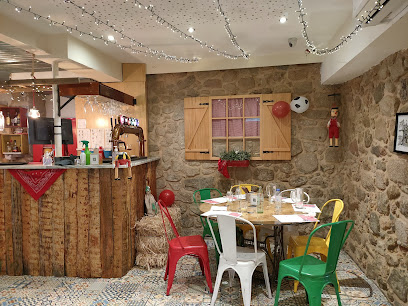
Restaurante Tia Isabel
Discover authentic Portuguese flavors and fresh seafood at Restaurante Tia Isabel in Braga - a culinary haven for every food lover.
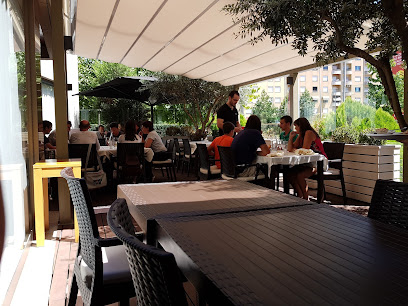
Gosto Superior
Discover Gosto Superior in Braga – A delightful vegetarian restaurant offering fresh ingredients and vibrant flavors in a cozy setting.
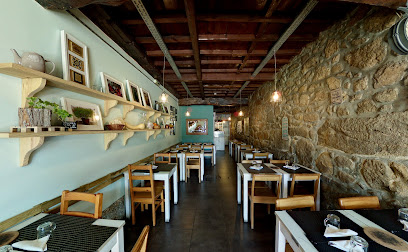
Restaurante Cozinha da Sé
Discover the essence of Portuguese cuisine at Restaurante Cozinha da Sé in Braga - where tradition meets modern flavor.
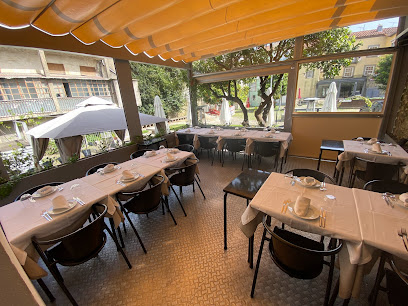
Retrokitchen
Experience the vibrant flavors of Portugal at Retrokitchen in Braga - where culinary creativity meets local charm.
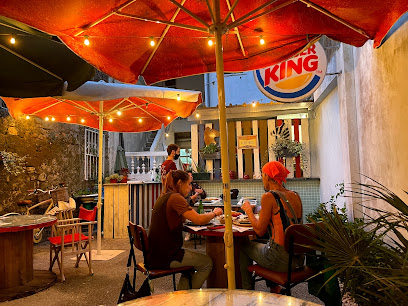
Restaurante O Jacó
Savor traditional Portuguese flavors at Restaurante O Jacó in Braga—an unforgettable dining experience amidst local charm.
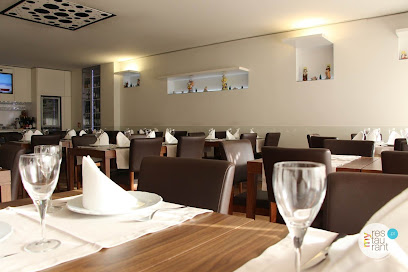
Restaurante Velhos Tempos
Discover traditional Portuguese cuisine in Braga at Restaurante Velhos Tempos – where every meal tells a story.
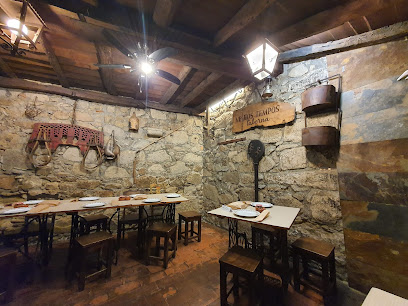
Restaurante Dona Petisca
Experience authentic Portuguese flavors at Restaurante Dona Petisca in Braga - where tradition meets taste in every bite.
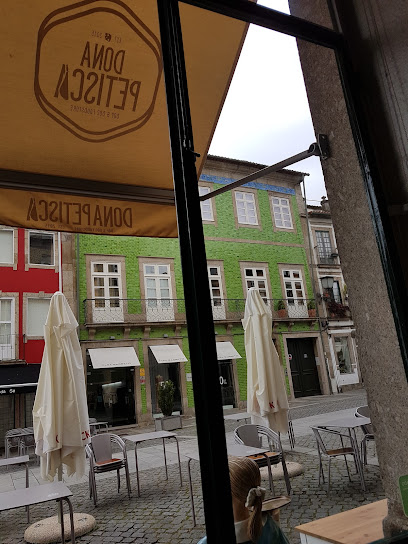
Restaurante DONNA SÉ
Experience authentic Portuguese cuisine at Restaurante DONNA SÉ in Braga – where tradition meets modern culinary artistry.
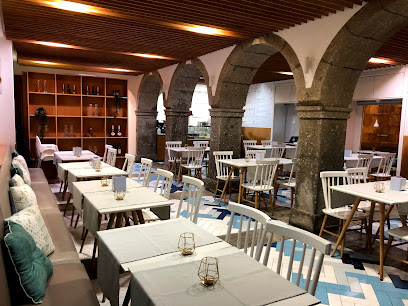
Casa de Pasto das Carvalheiras
Experience an unforgettable culinary journey at Casa de Pasto das Carvalheiras in Braga, blending Mediterranean and Thai flavors in a cozy atmosphere.
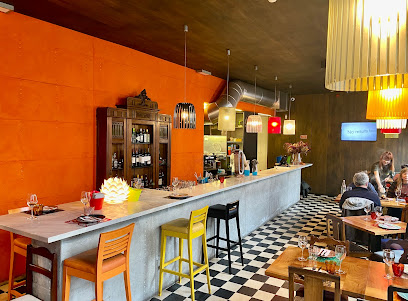
Tasquinha Dom Ferreira
Experience authentic Portuguese cuisine at Tasquinha Dom Ferreira in Braga - where every dish tells a story.
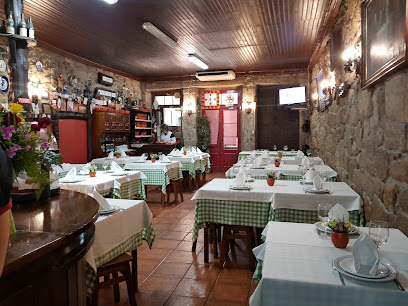
La Piola - Cucina con Storia
Discover authentic Italian cuisine at La Piola in Braga – where tradition meets flavor in every dish.
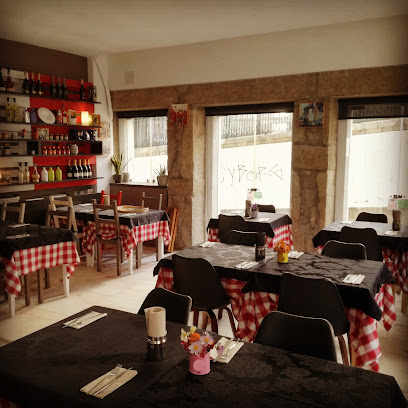
Naco na Pedra
Experience authentic Portuguese cuisine at Naco na Pedra in Braga – where tradition meets modern dining.
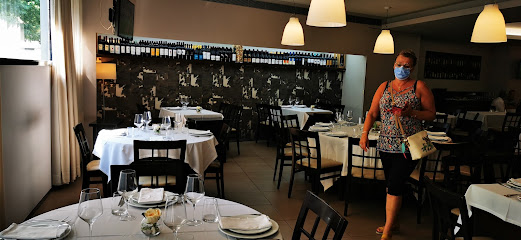
Alma d'Eça
Experience exquisite fusion cuisine at Alma d'Eça in Braga - where Japanese sushi meets Mediterranean flavors in an unforgettable dining adventure.
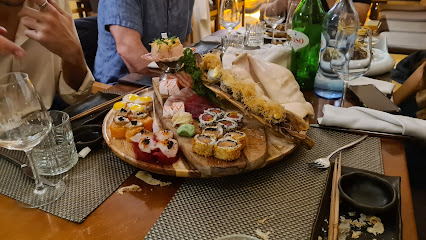
Arcoense
Discover culinary excellence at Arcoense in Braga—where fresh ingredients meet innovative Portuguese cuisine in an elegant setting.
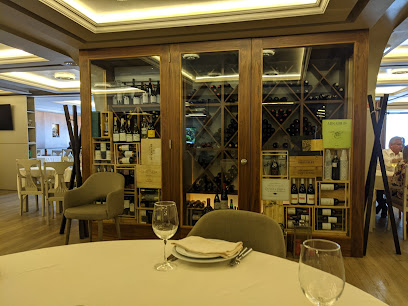
Markets, malls and hidden boutiques
Braga Parque
Discover Braga Parque, the ultimate shopping haven in Braga with diverse stores, delicious dining options, and thrilling entertainment for all ages.
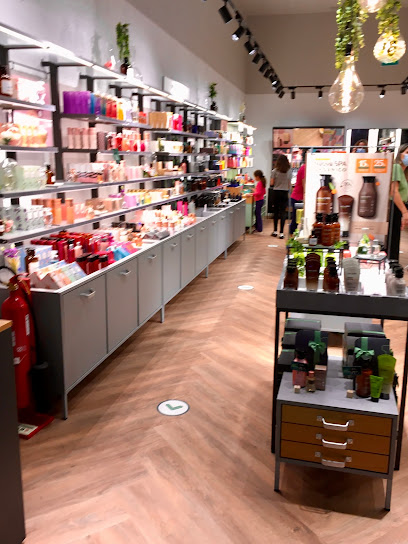
Nova Arcada
Explore Nova Arcada, Braga's premier shopping destination with diverse retail options, delightful dining, and exciting entertainment for tourists and locals alike.
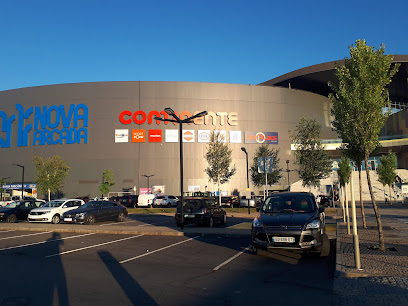
Minho Center
Explore the Minho Center in Braga for an unforgettable shopping and dining experience, blending modernity with local culture.
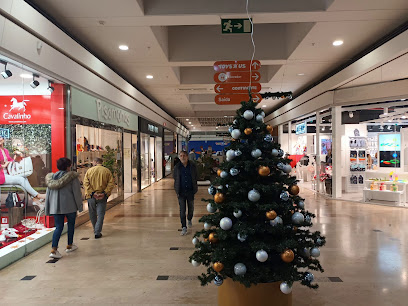
BragaShopping
Explore BragaShopping, a lively mall offering diverse shops, delicious dining, and vibrant entertainment in the heart of Braga, Portugal.
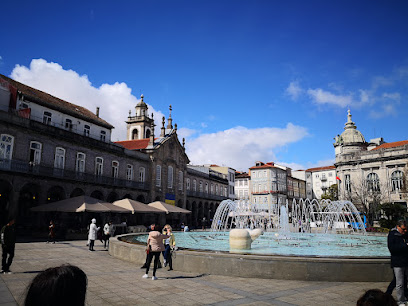
Braga Retail Center
Discover the Braga Retail Center, where shopping, dining, and entertainment come together in a vibrant hub in the heart of Braga, Portugal.
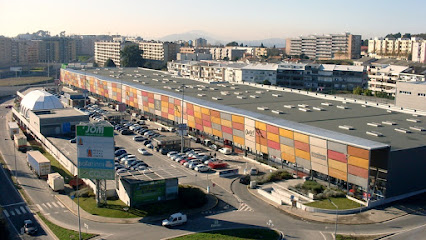
Zara Kids
Discover stylish and affordable children's clothing at Zara Kids in Braga, where fashion meets fun for your little ones!
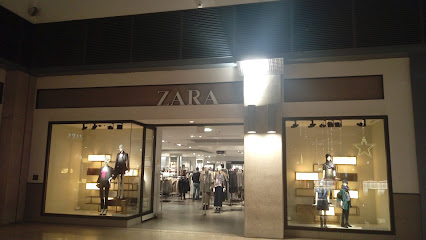
Shopping Santa Cruz
Explore Shopping Santa Cruz in Braga for a vibrant mix of shops, dining, and entertainment, encapsulating the best of Portuguese culture.
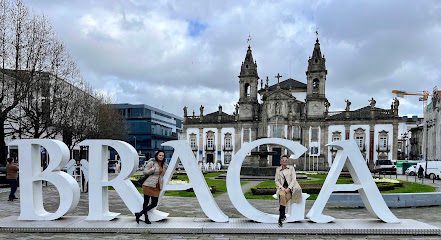
Pandora
Explore the elegant charm of Pandora in Braga Parque, where exquisite jewelry meets personalized style in a vibrant shopping destination.
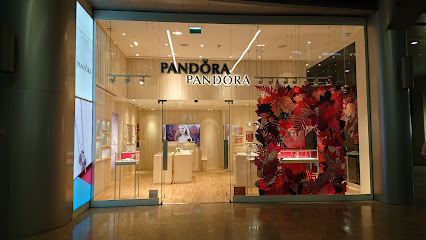
W52 Jeans Braga
Explore W52 Jeans Braga for the latest in denim and casual styles, perfectly situated in the heart of Braga, Portugal.
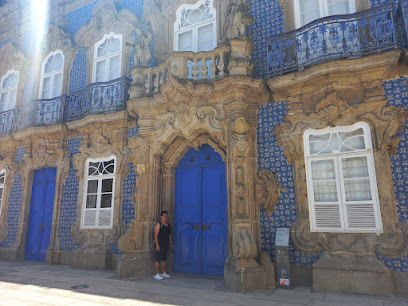
Shopping
Experience Braga's vibrant shopping scene with unique gifts, stylish furniture, and essential home goods in one convenient location.
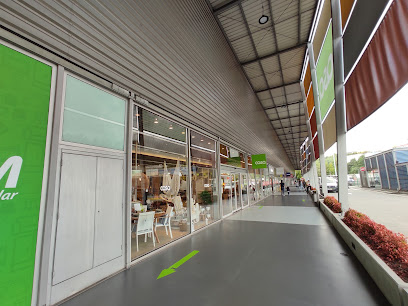
ANTONIU'S
Experience luxury and elegance at ANTONIU'S, Braga's premier couture store, featuring exquisite fashion and personalized service.
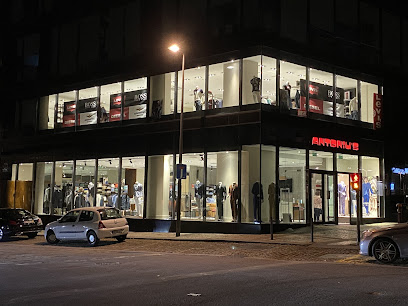
2ªOpção vintage store
Explore the charm of Braga at 2ªOpção Vintage Store, where unique vintage clothing and accessories await every fashion enthusiast.
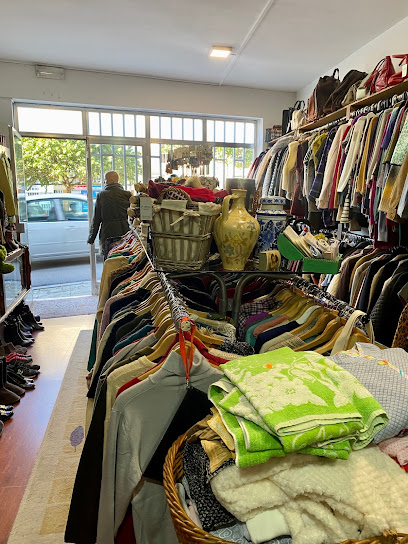
IGS The Indian Grocery store
Explore authentic Indian flavors at IGS The Indian Grocery Store, Braga's premier destination for spices, sweets, and health food.
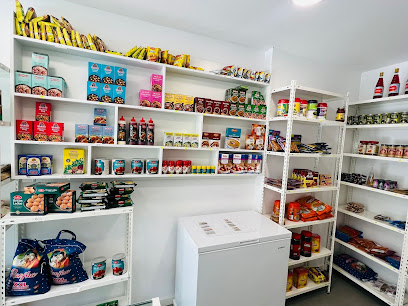
sweetie shop
Explore Sweetie Shop in Braga for trendy clothing and accessories that embody the local culture, perfect for tourists and fashion lovers alike.
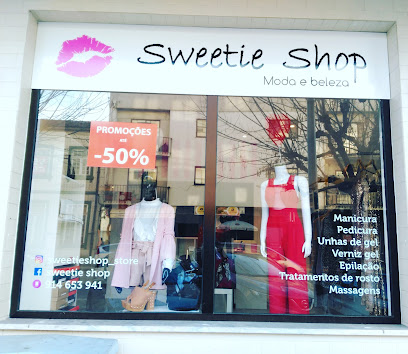
Vintage Alternative Store
Explore a treasure trove of vintage furniture and antiques at Braga's Vintage Alternative Store, where history meets style and charm.
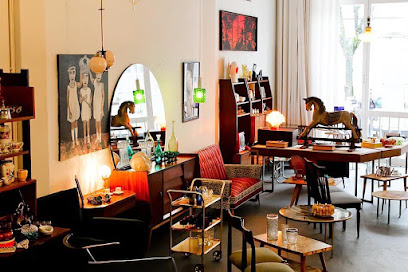
Essential bars & hidden hideouts
SETRA Urban & Cocktail Bar
Experience Braga's vibrant nightlife at SETRA Urban & Cocktail Bar, where innovative cocktails and great vibes await you.
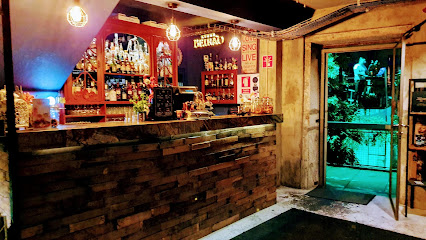
Lounge Bar
Discover Lounge Bar in Braga, where vibrant nightlife meets exceptional drinks in a cozy atmosphere, perfect for winding down your adventures.
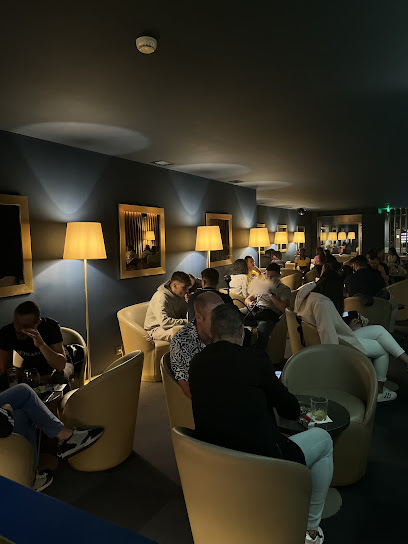
Rossio Bar
Discover Braga's nightlife at Rossio Bar, where vibrant drinks and a welcoming atmosphere await every visitor.
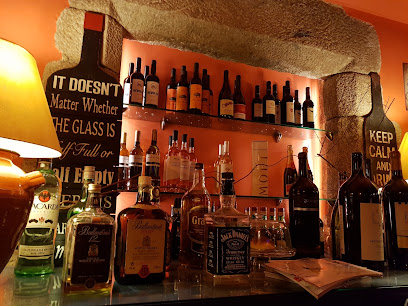
Mal Amado
Discover Mal Amado in Braga, a vibrant bar and brewpub offering local craft beers and a lively atmosphere in a unique and cozy setting.
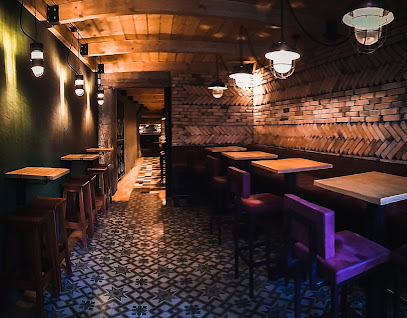
Rick Universal
Discover Braga's nightlife at Rick Universal, a lively bar offering affordable drinks and a welcoming atmosphere in the heart of the city.
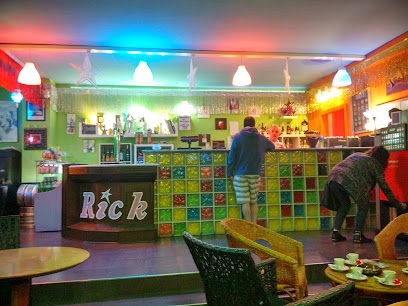
Sé La Vie
Experience the vibrant nightlife of Braga at Sé La Vie, a trendy bar offering a diverse drink selection and a lively atmosphere.
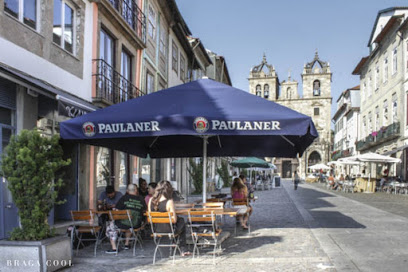
Pelle
Experience the vibrant nightlife of Braga at Pelle, where exquisite drinks and a lively atmosphere await every visitor.
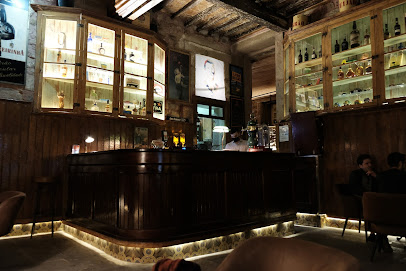
Dona Beer
Discover the vibrant atmosphere of Dona Beer, a premier beer garden in Braga, offering an extensive selection of craft beers and a welcoming environment.
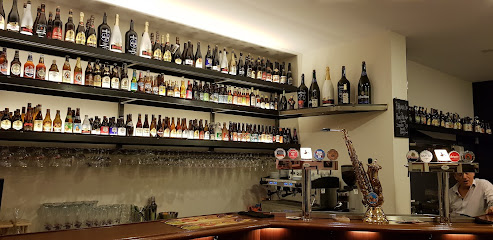
33 Bar
Experience the heart of Braga's nightlife at 33 Bar, where great drinks and a lively atmosphere await you.
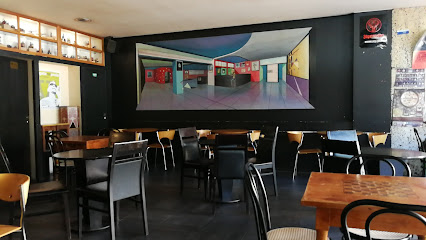
Juno
Experience the vibrant nightlife of Braga at Juno, a lively bar offering affordable drinks and great music for an unforgettable evening.
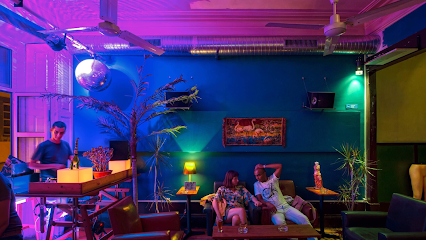
Bill's Sports Bar
Discover the ultimate blend of sports, karaoke, and craft brews at Bill's Sports Bar in Braga, the perfect spot for a fun night out.
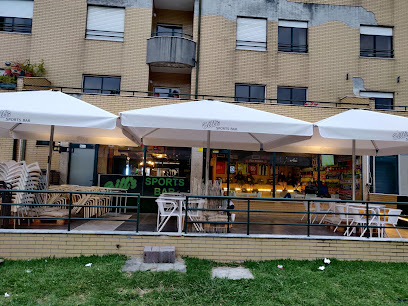
Stephane Bar
Discover Stephane Bar in Braga: A lively hotspot for affordable drinks, local culture, and unforgettable nightlife experiences.
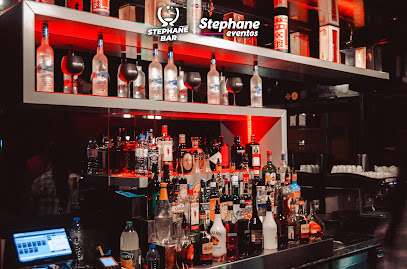
Michels's Bar
Experience the vibrant nightlife of Braga at Michels's Bar, where great drinks and a friendly atmosphere await.
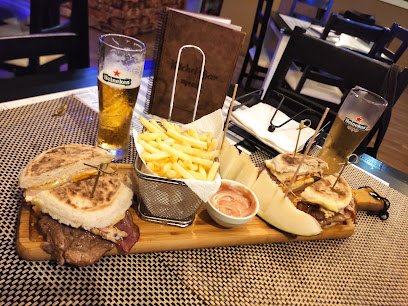
Bar Tosga
Discover the vibrant atmosphere and delightful drinks at Bar Tosga, Braga's lively bar perfect for socializing and relaxation.
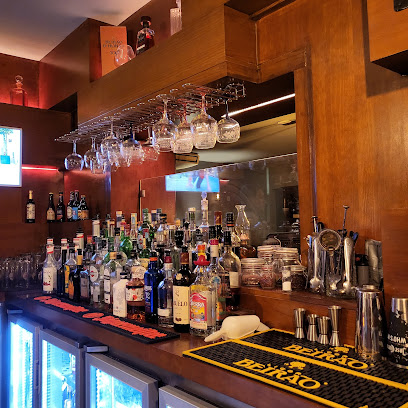
Travel experiences inspired by this city
Explore more travel diariesLocal Phrases
-
- HelloOlá
[oh-lah] - GoodbyeAdeus
[ah-deh-oos] - YesSim
[seem] - NoNão
[now] - Please/You're welcomePor favor/De nada
[por fah-vohr/deh nah-dah] - Thank youObrigado
[oh-bree-gah-doo] - Excuse me/SorryCom licença/Desculpe
[kohm lee-sen-sah/deh-skool-peh] - How are you?Como está?
[koh-moh ehs-tah] - Fine. And you?Bem. E tu?
[behn/eh too] - Do you speak English?Fala inglês?
[fah-lah een-glehsh] - I don't understandNão entendo
[now ehn-tehn-doo]
- HelloOlá
-
- I'd like to see the menu, pleaseGostaria de ver o menu, por favor
[goh-stah-ree-ah deh vehr ooh meh-noo, poor fah-vohr] - I don't eat meatNão como carne
[now koh-moh kahr-neh] - Cheers!Saúde!
[sow-deh] - I would like to pay, pleaseGostaria de pagar, por favor
[goh-stah-ree-ah deh pah-gahr, poor fah-vohr]
- I'd like to see the menu, pleaseGostaria de ver o menu, por favor
-
- Help!Ajuda!
[ah-joo-dah] - Go away!Vai embora!
[vah-ee ehm-boh-rah] - Call the Police!Chame a polícia!
[shah-meh ah poh-lee-see-ah] - Call a doctor!Chame um médico!
[shah-meh oom meh-dee-koo] - I'm lostEstou perdido
[ehs-toh pehr-dee-doo] - I'm illEstou doente
[ehs-toh doo-ehn-teh]
- Help!Ajuda!
-
- I'd like to buy...Gostaria de comprar...
[goh-stah-ree-ah deh kohm-prahr] - I'm just lookingEstou só a ver
[ehs-toh soh ah vehr] - How much is it?Quanto custa?
[kwahn-toh koos-tah] - That's too expensiveIsso é muito caro
[ee-soh eh moo-ee-toh kah-roo] - Can you lower the price?Pode baixar o preço?
[poh-deh bye-shahr ooh preh-soh]
- I'd like to buy...Gostaria de comprar...
-
- What time is it?Que horas são?
[keh oh-rahz sah-oh] - It's one o'clockÉ uma hora
[eh oo-mah oh-rah] - Half past (10)Meia hora (dez)
[may-ah oh-rah (dehz)] - MorningManhã
[mahn-yah] - AfternoonTarde
[tahr-deh] - EveningNoite
[noy-teh] - YesterdayOntem
[ohn-tehm] - TodayHoje
[oh-jeh] - TomorrowAmanhã
[ah-mahn-yah] - 1Um
[oom] - 2Dois
[doysh] - 3Três
[trehs] - 4Quatro
[kwah-troh] - 5Cinco
[seen-koh] - 6Seis
[saysh] - 7Sete
[seh-teh] - 8Oito
[oy-toh] - 9Nove
[noh-veh] - 10Dez
[dehz]
- What time is it?Que horas são?
-
- Where's a/the...?Onde fica o/a...?
[ohn-deh fee-kah oh/ah] - What's the address?Qual é o endereço?
[kwahl eh oo ehn-deh-reh-soh] - Can you show me (on the map)?Pode mostrar-me (no mapa)?
[poh-deh moh-strahr-meh (noo mah-pah)] - When's the next (bus)?Quando é o próximo (autocarro)?
[kwahn-doo eh oo proh-kshee-moo (ow-toh-kah-roo)] - A ticket (to ....)Um bilhete (para ....)
[oom bee-lyeh-teh (pah-rah)]
- Where's a/the...?Onde fica o/a...?
History of Braga
-
Braga, originally known as Bracara Augusta, was founded by the Romans in 16 BC. As the capital of the province of Gallaecia, it became an important administrative and cultural center. The city's Roman heritage is still evident today, with remnants of ancient baths, temples, and an amphitheater scattered throughout the city. The well-preserved Roman thermae, or public baths, offer a glimpse into the daily lives of Braga's early inhabitants.
-
Braga holds a significant place in the history of Christianity in the Iberian Peninsula. In the 4th century, it became one of the earliest Episcopal sees in Portugal. The influential Council of Braga in 561 AD established important church doctrines. The city is also home to the beautiful Braga Cathedral, one of the oldest in Portugal, which was founded in the 11th century and remains a symbol of Braga's religious importance.
-
During the medieval period, Braga flourished as a center of religious and political power. It was during this time that the city earned the nickname 'Portuguese Rome' due to its numerous churches and religious institutions. The Archbishop of Braga wielded considerable influence, often rivaling that of the Portuguese monarchy. The medieval architecture, including the magnificent Braga Cathedral and the Episcopal Palace, stands as a testament to this era.
-
The 17th and 18th centuries were marked by the Baroque period, which left a profound impact on Braga's architectural landscape. The Sanctuary of Bom Jesus do Monte, with its grand staircase and elaborate chapels, epitomizes Baroque artistry. The pilgrimage site not only showcases religious devotion but also offers breathtaking views of the city and surrounding countryside. Other notable Baroque structures include the Archbishop's Palace and the Church of Santa Cruz.
-
The 19th and 20th centuries brought significant changes to Braga. The city underwent urban modernization, with new infrastructure, educational institutions, and cultural centers emerging. The University of Minho, established in 1973, has become a leading academic institution, contributing to Braga's reputation as a city of knowledge. Additionally, Braga has embraced technological advancements and economic growth, becoming a thriving hub for innovation and industry.
-
Braga is renowned for its vibrant cultural festivals and traditions, which reflect the city's rich heritage. The Holy Week celebrations, known as 'Semana Santa,' are among the most significant in Portugal, drawing visitors from around the world. The festival features solemn processions, religious ceremonies, and traditional music. Another highlight is the 'São João' festival in June, which celebrates the city's patron saint with lively parades, music, and fireworks.
Braga Essentials
-
Braga, located in the northern region of Portugal, is accessible via several modes of transportation. The nearest major airport is Francisco Sá Carneiro Airport (OPO) in Porto, approximately 50 kilometers away. From the airport, you can take a direct bus or a combination of metro and train to reach Braga. The journey typically takes around 1 to 1.5 hours by public transport. For those driving, the A3 motorway connects Braga to Porto and other major cities.
-
Braga boasts a well-developed public transportation system, including buses operated by TUB (Transportes Urbanos de Braga). Tickets can be purchased on the bus or at various kiosks around the city. Taxis are also readily available and can be hailed on the street or booked through apps. For more flexibility, consider renting a car, especially if you plan to explore the surrounding Minho region. Biking is another popular option, with several bike rental services and dedicated lanes.
-
The official currency in Braga is the Euro (EUR). Credit and debit cards are widely accepted in hotels, restaurants, and shops. However, it's advisable to carry some cash for smaller establishments and markets. ATMs are plentiful and can be found throughout the city. Be aware that some ATMs may charge a fee for international cards. Currency exchange services are available at banks and dedicated exchange offices.
-
Braga is generally a safe city for tourists. However, like any urban area, it's essential to remain vigilant, especially in crowded spots like Praça da República or during local festivals. Petty crimes such as pickpocketing can occur, so keep your belongings secure. Avoid poorly lit areas at night, and always use reputable taxi services. While Braga does not have significant high-crime areas targeting tourists, staying aware of your surroundings is always a good practice.
-
In case of emergency, dial 112 for immediate assistance, which will connect you to police, fire, and medical services. Braga has several hospitals and clinics, including the Hospital de Braga for urgent medical needs. Pharmacies are abundant and can provide over-the-counter medications. It's recommended to have travel insurance that covers medical emergencies. For consular assistance, contact your country's embassy or consulate in Portugal.
-
Fashion: Do dress conservatively, especially when visiting religious sites like the Bom Jesus do Monte sanctuary. Avoid overly casual or revealing clothing. Religion: Do show respect in religious settings. Cover your shoulders and knees, and remain quiet. Public Transport: Do allow elderly passengers and those with disabilities to take priority seating. Don't eat or drink on public transportation. Greetings: Do greet with a handshake. Use 'Bom dia' (Good morning) or 'Boa tarde' (Good afternoon). Eating & Drinking: Do try local dishes and specialties such as Bacalhau à Braga. Don’t rush your meals; savor the experience.
-
To experience Braga like a local, visit the Mercado Municipal for fresh produce and local delicacies. Take a leisurely stroll through Jardim de Santa Bárbara and enjoy the well-manicured gardens. Engage with locals; they are friendly and often eager to share insights about their city. Attend a service or simply appreciate the architecture at the Cathedral of Braga, one of the oldest in Portugal. For a unique experience, take the funicular to Bom Jesus do Monte and enjoy panoramic views of Braga.
Trending Landmark in Braga
-
Bom Jesus do Monte
-
Sanctuary of Our Lady of Sameiro
-
Braga Cathedral
-
Arco da Porta Nova
-
Santa Barbara Garden
-
Chafariz da Praça da República
-
Monastery of São Martinho de Tibães
-
Bom Jesus Staircases
-
Palácio do Raio
-
Parque do Monte do Picoto
-
Braga Tower
-
Biscainhos Museum
-
Bom Jesus Funicular
-
Church of Saint Victor
-
Ponte de Prado
Nearby Cities to Braga
-
Things To Do in Guimarães
-
Things To Do in Ponte de Lima
-
Things To Do in Viana do Castelo
-
Things To Do in Porto
-
Things To Do in Vila Real
-
Things To Do in Lamego
-
Things To Do in Chaves
-
Things To Do in Aveiro
-
Things To Do in Bragança
-
Things To Do in Santiago de Compostela
-
Things To Do in Coimbra
-
Things To Do in Tomar
-
Things To Do in Viseu
-
Things To Do in Salamanca
-
Things To Do in Caldas da Rainha

























